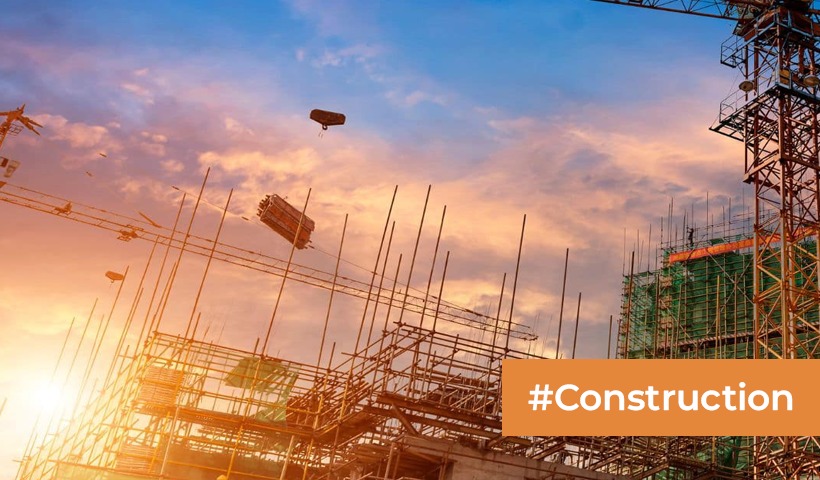The Call for Stronger Construction Regulations in India’s Real Estate
The dream of owning a home is a significant milestone for many individuals and families in India. However, the journey towards realizing this dream is often fraught with challenges, and one of the most pressing concerns is the quality of construction. Increasingly, homebuyers across the country are advocating for stringent regulations to ensure the construction quality of residential properties. In this in-depth exploration, we delve into the reasons behind this demand, the current state of construction regulations in India, and the potential benefits of enforcing quality standards for homebuyers.
The Need for Stringent Regulations:
- Rising Instances of Structural Defects: One of the primary motivations behind the call for stringent regulations is the escalating instances of structural defects in residential buildings. Reports of building collapses, poor construction practices, and compromised safety standards have raised concerns among homebuyers, prompting a collective demand for stricter oversight.
- Consumer Protection: Homebuyers invest their hard-earned savings in purchasing a property, and they rightfully expect a safe and durable home. Stringent regulations can serve as a safeguard, ensuring that construction projects adhere to established standards, thereby protecting the interests of the consumers.
- Inconsistent Quality Across Projects: The inconsistency in construction quality across different projects is a prevalent issue in the real estate sector. Homebuyers argue that uniform regulations will create a level playing field, preventing unscrupulous developers from cutting corners and compromising on the quality of materials and workmanship.
- Lack of Accountability: Homebuyers often face challenges in holding developers accountable for construction defects. Robust regulations would not only establish clear standards but also provide a framework for accountability, making it easier for consumers to seek recourse in case of substandard construction.
The Current State of Construction Regulations in India:
- Building Codes and Standards: India has various building codes and standards formulated by organizations such as the Bureau of Indian Standards (BIS) and the National Building Code (NBC). While these codes provide guidelines, their implementation lacks uniformity, leading to variations in construction quality across projects.
- RERA (Real Estate Regulatory Authority) Act: The Real Estate (Regulation and Development) Act, commonly known as RERA, was enacted to address issues in the real estate sector, including transparency and accountability. RERA mandates the registration of real estate projects and aims to protect the interests of homebuyers. However, the enforcement of RERA provisions varies across states, leading to gaps in implementation.
- Local Municipality Regulations: Local municipal bodies play a crucial role in approving building plans and inspecting construction sites. However, the efficacy of these bodies in enforcing quality standards is often hindered by factors such as corruption, lack of resources, and bureaucratic delays.
Benefits of Stringent Regulations for Homebuyers:
- Assured Construction Quality: Stringent regulations would ensure that construction projects adhere to predefined standards, providing homebuyers with the assurance that their investment is in a structurally sound and well-constructed property.
- Increased Transparency: Clear regulations contribute to increased transparency in the real estate sector. Homebuyers can make informed decisions based on standardized information about the quality of construction, building materials, and adherence to safety norms.
- Reduced Litigation: With well-defined regulations, the likelihood of construction-related disputes and litigation decreases. Homebuyers can have confidence in the quality of their homes, reducing the need for legal battles to rectify construction defects.
- Enhanced Consumer Confidence: Stringent regulations enhance consumer confidence in the real estate market. Homebuyers are more likely to invest in properties when they have faith in the adherence to quality standards, leading to a healthier and more sustainable real estate ecosystem.
- Professionalism in the Industry: Regulations would encourage a more professional approach within the construction industry. Developers and builders, knowing that they are bound by stringent standards, are incentivized to prioritize quality in their projects, fostering a culture of excellence.
Challenges and Possible Solutions:
- Enforcement and Monitoring: One of the major challenges is the effective enforcement and monitoring of regulations. Strengthening regulatory bodies, increasing their resources, and leveraging technology for regular inspections can address this challenge.
- Standardization Across States: Achieving standardization across states is crucial for the success of stringent regulations. National bodies like BIS and NBC can play a pivotal role in creating uniform construction standards applicable across the country.
- Awareness and Education: Many homebuyers may not be fully aware of their rights or the importance of stringent construction regulations. Public awareness campaigns and educational initiatives can empower consumers to make informed decisions and demand quality construction.
The demand for stringent regulations to ensure construction quality reflects the aspirations of Indian homebuyers for safe, durable, and value-for-money homes. While India has made strides with initiatives like RERA, there is a collective need for comprehensive and consistently enforced regulations that prioritize the interests of the consumers. By addressing these concerns and fortifying the regulatory framework, the Indian real estate sector can evolve into a more transparent, accountable, and consumer-centric industry, ultimately benefiting both homebuyers and the nation’s urban development.




